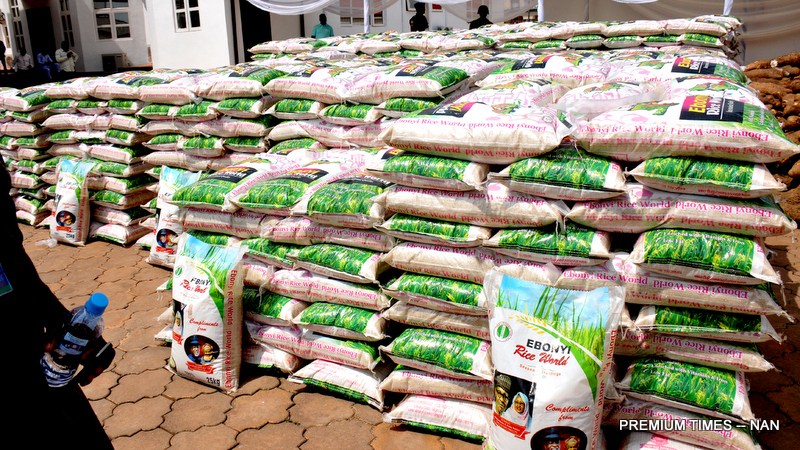The Central Bank of Nigeria (CBN), has appealed to members of Rice Millers Association of Nigeria (RIMAN) and other stakeholders in the rice value chain not to increase the price of rice over boarder closure.

Mr Godwin Emefiele, the CBN governor said this in a statement issued and made available to newsmen on Monday in Abuja by Mr Muhammed Tijani, Media Assistant to RIMAN’s Chairman.
According to the CBN governor, the boarder closure was meant to promote the growth of the Nigerian economy and ensure that the country attained food self-sufficiency in the rice value chain.
He also called on them not to hoard rice as a result of the closure of the boarders in order to increase its price, adding that such acts were unpatriotic. He explained that the border closure was for the benefit and wellbeing of Nigerians.

Governor, Central Bank of Nigeria.
Emiefele also explained that rice imported into the country were highly chemicalised for preservation, therefore not good for human consumption. He called on rice millers to support government’s effort in the rice value chain sector adding that there was need to increase rice production and discourage hoarding which would lead to price increase and hardship in the country.
Reality check
In most developing countries including Nigeria, rice is the one of the most economically important food crop as it is consumed daily by everyone in the country. The demand for rice in Nigeria therefore is one that calls for increased production and supply.
The questions raised by economy watchers in the country center on the fact that rice production in Nigeria is fraught with a number of challenges ranging from Labor, Land, Capital and Lack of Storage facilities to quality processing.

While the government hopes to stem off smuggling of rice into the country while at the same time encourage in its production locally through the closure of the borders, Nigerians are of the opinion that a well-developed local rice economy if in place will go a long way stemming off rice importation without a need for border closure to its effect.
It will be recalled that in 2017, the Nigerian government under the leadership of former president Goodluck Jonathan had emphasized its position about the country attaining its goal of self-sufficiency in rice production by the year 2018.
According to the then information Minister Alhaji Lai Mohammed, the Thailand rice Exporters Association had disclosed that within a spate of just two years – from September 2015 to September 2017 – Nigeria’s rice importation dropped from 644,131 Metric Tonnes to just about 21,000MT. And as a result, rice Experts from Thailand had shown interest in establishing rice milling plants in the country to boost rice production in Nigeria.
Given this report on rice production in the country as at 2017, it would be expected that the border closure and ban on importation of rice by the government would not have been necessary as the country by now all things been equal would have gone far ahead in its effort to achieving self –sufficiency in rice production by 2019.














